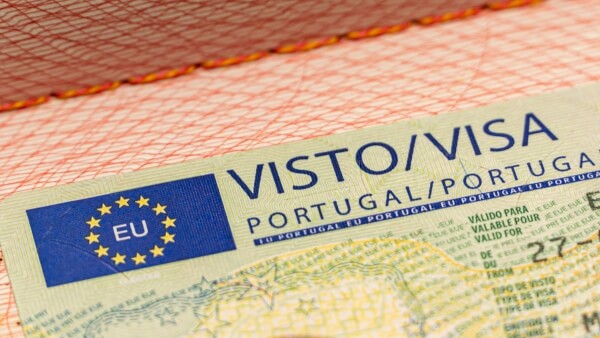How Portugal citizenship by investment works
Thinking of applying for a Portuguese passport? Read our guide on the Portugal citizenship by investment programme, featuring requirements, costs and benefits.

Are you set to receive an inheritance from a relative living in Portugal? Perhaps you’ve retired to Portugal as a UK expat, and plan to see out your days there.
In either circumstance, it’s useful to know a little about how Portuguese inheritance law works - especially in relation to taxes.
Read on for a complete guide to inheritance tax in Portugal, covering everything you need to know. This includes rates, allowances, exemptions and how inheritance tax is calculated in the country.
We’ll also show you how to send large amounts of money securely between countries using the Wise Account. This can be extremely useful if you have inheritance tax to pay, or want to send money from an inheritance back to the UK.
Inheritance tax, known as IHT in the UK, is a tax paid to the government on the estate of someone who has died. The ‘estate’ usually encompasses all property and possessions, as well as savings, investments and pensions.
Many countries have inheritance tax systems. Depending where in the world you are, the tax may be known as estate tax, inheritance tax or succession tax.
However, not all countries have this kind of tax in place. Australia, Singapore, Sweden and Norway are among a handful of countries which don’t charge inheritance tax at all.¹
Technically speaking, Portugal doesn’t have inheritance tax. The Portuguese government abolished it in 2004.
However, it was replaced by something similar which may apply to the transfer of inherited assets in Portugal. This is Imposto do Selo, or Stamp Duty.²
This is set at a flat rate, and isn’t payable by direct legitimate heirs. It also only applies to real estate, property and other assets held in Portugal, rather than in other countries.²
The law and processes relating to inheritances is overseen by the Tax and Customs Authority (Finanças) and applies to the whole country, with no regional variations.
Under Portuguese inheritance tax laws, the estate of the deceased person is dealt with and taxed in the country they are permanently resident in.²
So if you have a relative who permanently lives in Portugal, you may be taxed under Portuguese laws for anything you inherit - even if you live in the UK or another country.
A crucial point to remember though is that only assets held in Portugal are subject to the country’s Imposto do Selo (stamp duty) tax.²
Direct legitimate heirs such as spouses, children, grandchildren, parents, and grandparents don’t have to pay it. However, you can expect some administration fees - especially if you’re not Portuguese and need to pay to have your documents translated and certified.²
Anyone who is liable for the Imposto do Selo will need to pay it separately to the tax authority. This is different to how it works in the UK, where a lump sum of tax is paid out of the estate.
It’s important to get professional tax advice to double check which country’s tax laws apply to you, especially if you live between countries or have property in multiple countries.

As Portugal charges stamp duty rather than inheritance tax, its rates are a little different to other countries.
In the UK, there’s a flat rate applied to estates valued over a certain sum.
Elsewhere in Europe, countries such as Spain, Italy and France use progressive tax systems where the rate falls into set categories depending on the value of the inheritance and/or the relationship of the beneficiary to the deceased person.
These countries also offer a tax-free personal allowance to each beneficiary based on how close a relative they are to the deceased.
But in Portugal, there’s just one rate of stamp duty (*Imposto do Selo) *to know about - a flat rate of 10%.² This applies to all beneficiaries who are eligible to pay the tax.
Under Portuguese inheritance laws, beneficiaries who are close relations of the deceased person are exempt from paying any tax or stamp duty. This includes:²
Any other beneficiaries will have to pay the 10% stamp duty on anything they inherit.
Nearly all property and assets are considered to be taxable assets - but only if they are held in Portugal. This includes real estate, vehicles, possessions, money and savings, investments and business interests.
The only possible exemptions are charitable donations, as well as bequests to dependent or severely disabled individuals - who may be eligible to apply for tax relief.³
The estimated value of the estate will be added up, along with the person’s debts (if any). Debts will be subtracted from the assets to come up with the total taxable value of the estate.
Here’s an overview of how Portuguese inheritance tax can be calculated:
If you are a beneficiary who is liable for stamp duty, this liability must be declared to the Tax and Customs Authority (Finanças) by the executor of the person’s estate.
To make this declaration, the following documents are required:⁴
This, along with reporting the death, must be done by the end of the third month following the month in which the death occurred.⁴
The stamp duty itself must be paid within the same time period.²
You’ll need to contact the tax authority to find out about available payment methods.
If you’re living in the UK or another country, a solution such as Wise could be ideal for sending a payment for inheritance tax to Portugal. You can send money worldwide with Wise, for low fees* and mid-market exchange rates. There’s even a dedicated service for securely sending large amounts.
After reading this, you should have a better idea of how the Portuguese inheritance tax system works - and how it applies to you and your family. We’ve looked at personal allowances, rates, exemptions and who has to pay the tax.
We’ve also covered how to pay inheritance tax in Portugal. If you need a way to pay inheritance tax, send inherited money back to the UK or generally manage your finances between countries - Wise is the perfect solution.
With Wise, you can hold and convert between 40+ currencies in your online account. And you can send money worldwide for low, transparent fees* and mid-market exchange rates.
If you’re sending a large sum between countries, read our quick guide on what documents you’ll need. Whether you’re paying foreign bills or trying to get the best exchange rates when repatriating funds from overseas back to the UK, your Wise account can do it all.
Below are some of the most frequently asked questions:
It all depends on your relationship to the person who has died. If you’re a close relative such as a spouse, child, parent or grandparent, you won’t have to pay the stamp duty tax that Portugal uses instead of inheritance tax.
If you are liable for stamp duty as the beneficiary of an inheritance in Portugal, there may potentially be a way you can reduce the bill.
If eligible, you can apply to become a non-habitual resident (NHR) in Portugal. This could give you certain tax benefits, including reductions or exemptions on income tax, wealth taxes, inheritance tax and foreign income tax. However, you won’t be able to apply if you’ve been a tax resident of Portugal within the last 5 years.²
It’s recommended to consult a tax expert for advice on your liabilities and obligations in relation to tax in other countries.
Portugal uses a system called forced heirship to determine how inheritances are divided.
This is where close relatives of the deceased are considered to have a right to inherit a share of their estate, despite what might be in the person’s will.
If there’s no will or the will is ruled invalid, estates are divided in line with the country’s forced heirship laws.²
Within the EU, the following countries have no inheritance taxes:⁵
Sources used:
Sources last checked on date: 21-Aug-2024
*Please see terms of use and product availability for your region or visit Wise fees and pricing for the most up to date pricing and fee information.
This publication is provided for general information purposes and does not constitute legal, tax or other professional advice from Wise Payments Limited or its subsidiaries and its affiliates, and it is not intended as a substitute for obtaining advice from a financial advisor or any other professional.
We make no representations, warranties or guarantees, whether expressed or implied, that the content in the publication is accurate, complete or up to date.

Thinking of applying for a Portuguese passport? Read our guide on the Portugal citizenship by investment programme, featuring requirements, costs and benefits.

Read our helpful guide on how to transfer a UK pension to Portugal, including the steps, fees and taxes involved.

Thinking of starting a new life somewhere warm and sunny? Portugal might be just the perfect spot. In fact, UK natives are the second largest expat group in...

A guide to the residence permit in Portugal, covering who can apply, how to apply, how it works and costs.

Everything you need to know about paying property tax in Portugal, including types of tax, rates for 2021/22 and how to pay your taxes.

Read on to find out everything about the cost of retiring in Portugal, as well as the process and the best places to retire.